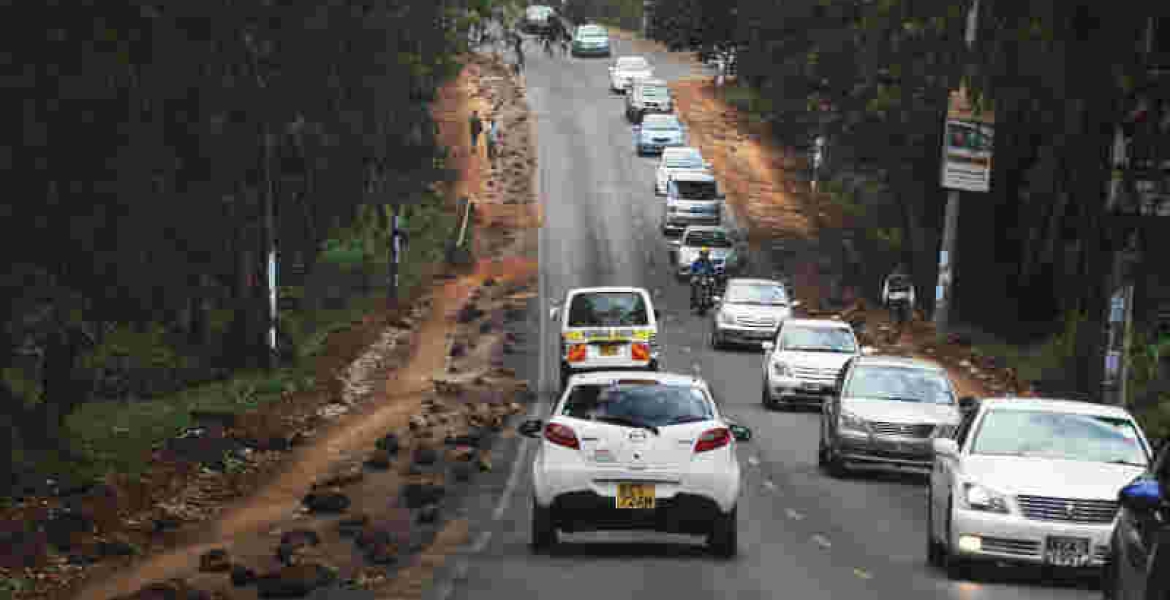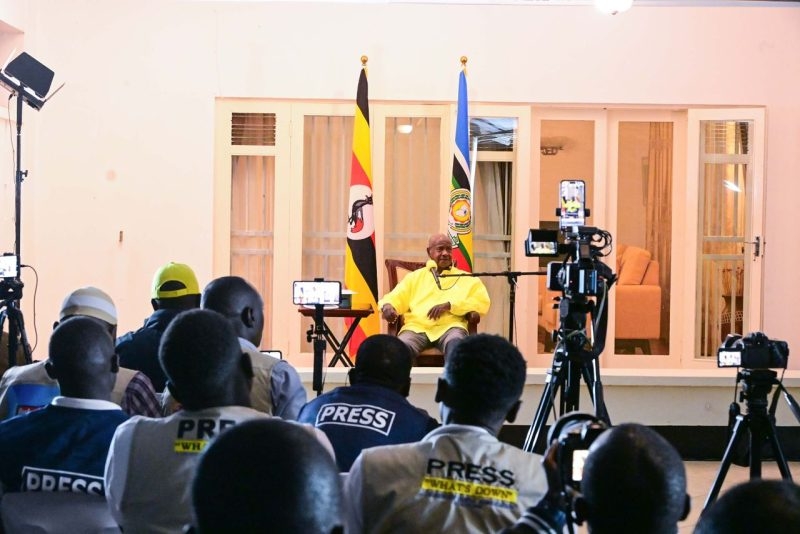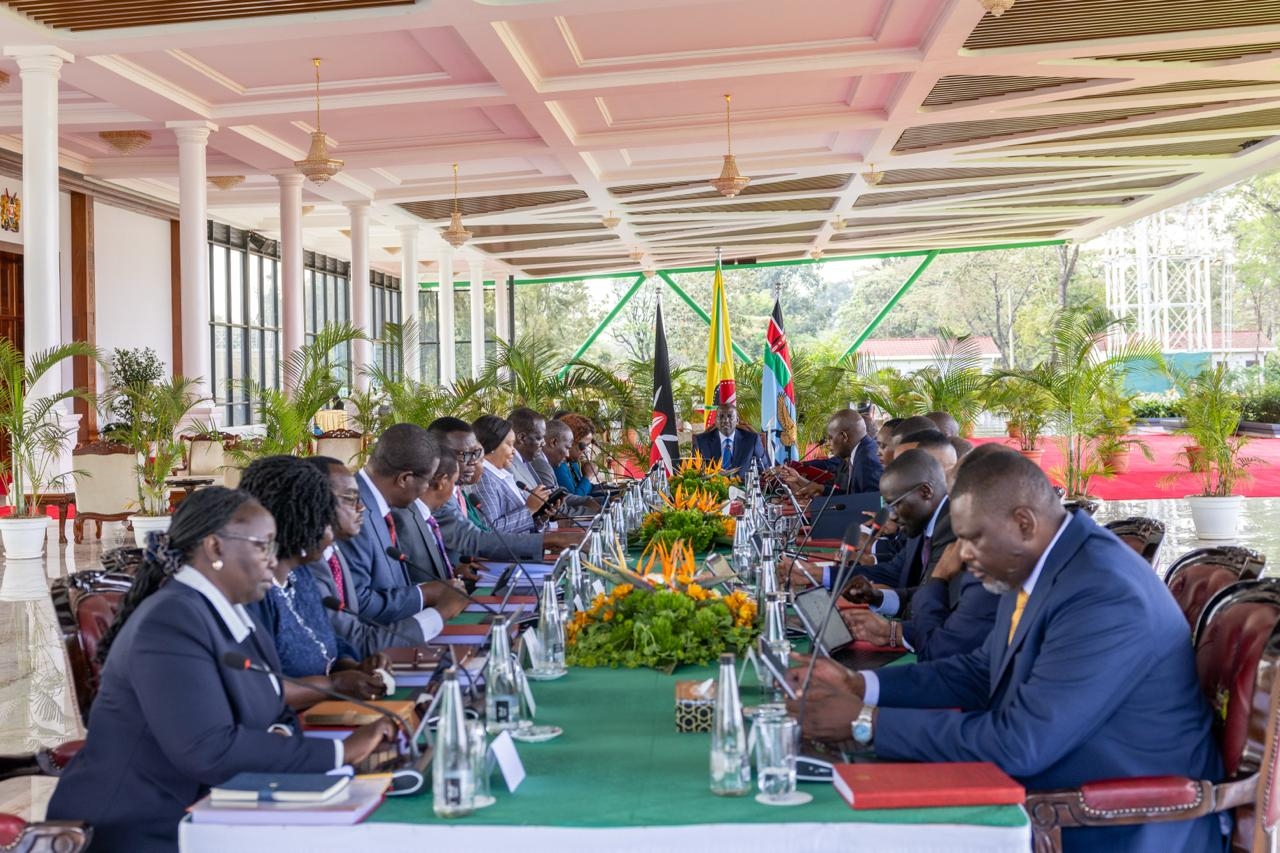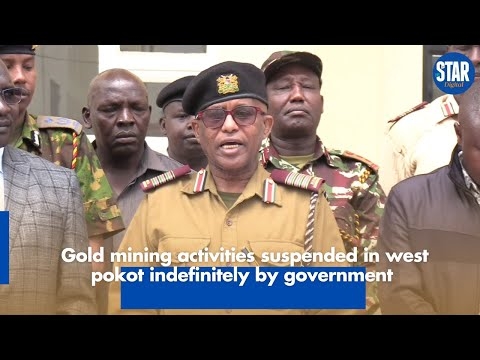
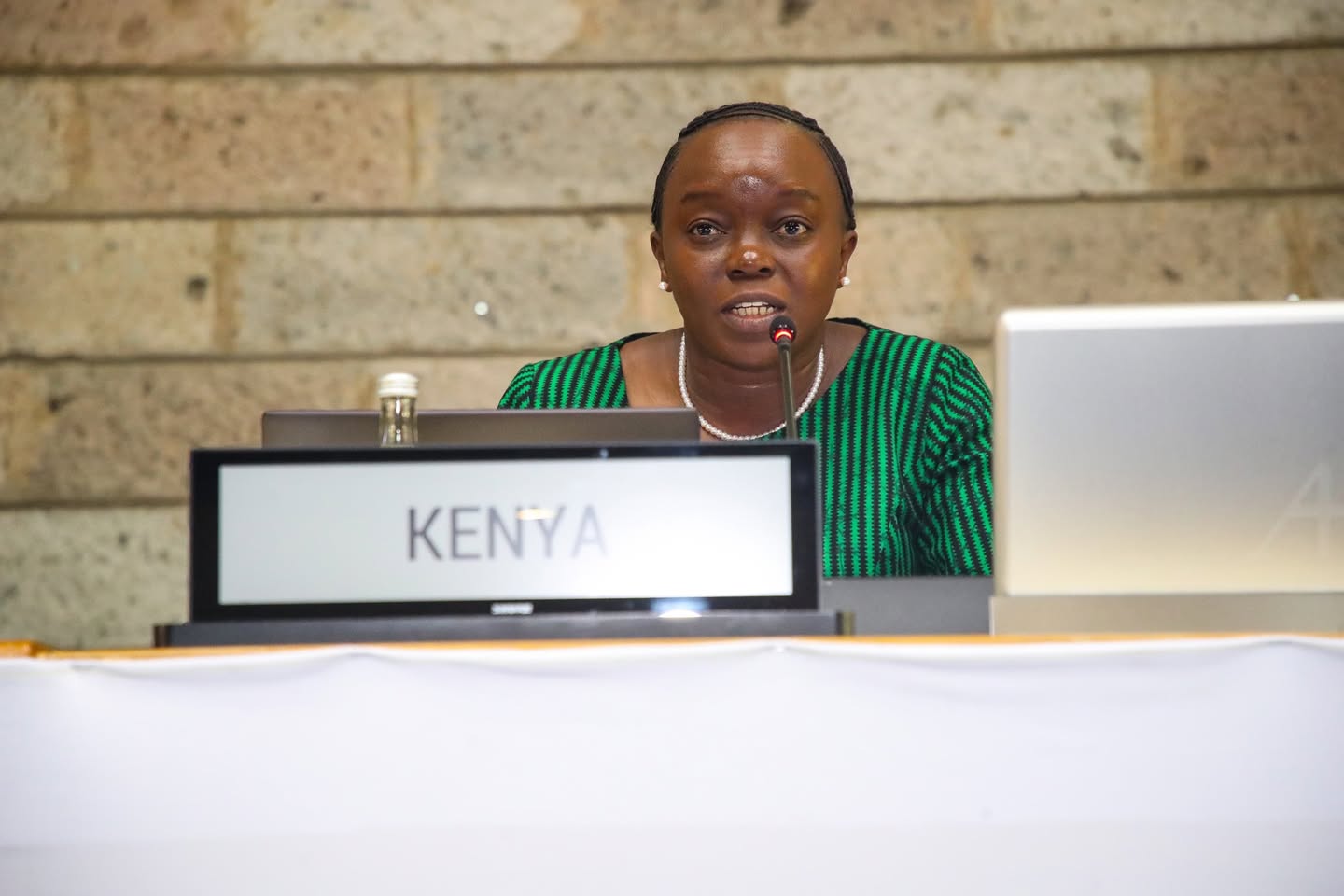 Environment CS Deborah Barasa makes remarks at the conference.
Environment CS Deborah Barasa makes remarks at the conference.Environment CS Deborah Barasa has challenged African countries to ensure mining activities are conducted responsibly to minimise harm to the ecosystem.
Speaking during a ministerial dialogue on critical minerals and the energy transition, Barasa said mining must also protect communities while supporting economic growth.
“Kenya has taken significant steps to ensure mining activities are conducted responsibly, minimising harm to ecosystems and local communities while supporting economic growth,” she told the delegates.
Barasa said Kenya’s regulatory framework, policies and enforcement mechanisms aim to strike a balance between mineral extraction and environmental and social safeguards.
The CS was among the senior government delegation taking part in the African Ministerial Conference on the Environment (AMCEN-20) held from July 14 to 18.
The conference was held under the theme “Four Decades of Environmental Action in Africa: Reflecting on the Past and Imagining the Future”.
Through the conference, African ministers are seeking solutions to challenges facing the planet, such as climate change, biodiversity loss and pollution.
Africa is home to 30 per cent of global mineral reserves, such as lithium, cobalt, graphite, rare earth elements, copper and nickel that are essential for renewable energy technologies, electric vehicles and energy storage systems.
Minerals such as copper, lithium, nickel and cobalt are needed to transition the world to renewable energy.
Barasa said as the world transitions to a low-carbon economy, these minerals present a significant opportunity for Africa to drive sustainable development, industrialisation and economic growth while supporting global climate goals.
“Our rich mineral reserves can enable Africa’s energy transition, supporting solar, wind and battery storage projects and informing the green industrialisation to position Africa as a leader in sustainable mineral supply chains,” Barasa said.
The CS said Africa’s critical minerals are a catalyst for a just energy transition, but only if managed sustainably and equitably.
“AMCEN can play a pivotal role in ensuring Africa’s mineral wealth drives inclusive growth, environmental protection and climate resilience while meeting global decarbonisation needs,” Barasa said.
The CS said Kenya has strengthened the mining governance through the Mining Act (2016), which requires Environmental and Social Impact Assessments before mining licences are granted.
She said the Environmental Management and Coordination Act (EMCA, 1999) mandates rehabilitation plans, pollution control measures and community development agreements to ensure mining projects allocate a portion of revenues to local development.
“To protect biodiversity, land and water resources, Kenya enforces the Strategic Environmental Assessments that assess potential impacts on ecosystems before mining begins; water resource management, where the mining firms must comply with Water Resources Authority regulations to prevent contamination; and Rehabilitation and Mine Closure Plans, where companies must restore mined land (such as reforestation in Kwale’s titanium mines),” Barasa said.
On the protection of biodiversity and sensitive areas, the CS said Kenya has exclusion zones and mining is banned in protected areas (such as national parks, forests).
“We also enforce biodiversity offsetting, where impacts are unavoidable and companies must invest in conservation (such as Base Titanium’s Kaya Muhaka forest conservation). Kenya has also established wildlife corridors and mining near wildlife habitats (such as Tsavo) requires mitigation measures.”
Barasa said as a country, we safeguard local livelihoods through community participation, compensation and benefit-sharing, where landowners receive fair compensation, such as in Kwale titanium mining.
She said alternative livelihood programmes in agribusiness, ecotourism and artisanal mining formalisation are also promoted.
“Kenya has put in place multi-agency oversight where the National Environment Management Authority, Water Resources Authority and Ministry of Mining conduct inspections and utilise satellite and drone surveillance to detect illegal mining and environmental violations.”
Barasa said Kenya has established a robust policy framework to ensure mining does not compromise ecosystems or livelihoods.
She said effective implementation, community engagement and stricter enforcement remain critical to achieving truly sustainable mining practices.
Some of the key recommendations for AMCEN from the CS included the support of sustainable mining policies through enforcement of strict Environment and Social Safeguards standards to minimise ecological damage, promote community-led benefit-sharing mechanisms, and build climate and energy synergies by linking mineral extraction to renewable energy projects.
She said there is a need to invest in skills development for green mining and circular economy practices and support research and development for mineral recycling and alternative technologies, among others.
She reiterated that Africa’s minerals should drive Africa’s future.
“As a call to action, AMCEN must ensure Africa’s mineral wealth drives local value chains, environmental justice and social equity and global leadership in green mineral supply chains.”





